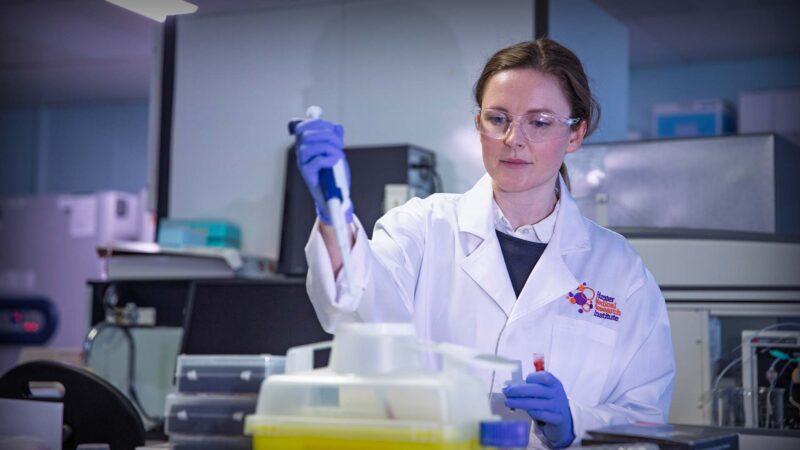RESEARCHER PROFILE
Associate Professor Peter Psaltis
Deputy Director and Co Theme Leader Lifelong Health
South Australian Health and Medical Research Institute (SAHMRI)
Australian Atherosclerosis Society, University of Adelaide, South Australian Postgraduate Medical Education Association (SAPMEA), Acute Coronary Syndrome Task Force, Central Adelaide Local Health Network (CALHN)
Associate Professor Peter Psaltis is an Academic Interventional Cardiologist who holds Level 2 NHMRC Career Development and National Heart Foundation Future Leader Fellowships. He has Faculty positions within the University of Adelaide, Central Adelaide Local Health Network (CALHN) and South Australian Health and Medical Research Institute (SAHMRI). Within SAHMRI, he is the Co-Theme Leader of the Lifelong Health, Program Leader of Heart and Vascular Health and Co-director of the Vascular Research Centre in the Lifelong Health Theme.
Associate Professor Psaltis graduated with Honours from the University of Adelaide Medical School in 1999. He ranked outright first in each of his six years of medicine and was the recipient of 25 undergraduate academic prizes and awards, including the highly prestigious University and Alumni University Medals. He undertook training in internal medicine and cardiology at the Royal Adelaide Hospital, and then his PhD at the University of Adelaide from 2006 to 2009. His doctoral studies investigated the cardiovascular reparative properties of immunoselected bone marrow mesenchymal precursor cells. This was followed by a postdoctoral fellowship as an NHMRC CJ Martin Fellow in the laboratory of Professor Robert Simari at the Mayo Clinic, MN, USA (2009-2012). There he discovered the existence of adventitial macrophage progenitor cells (AMPCs) in postnatal mammalian arteries. He received eleven awards for his PhD and post-doctoral research, including the inaugural Early Career Investigator Award of the ATVB Council at the American Heart Association meeting in 2011.
A/Prof Psaltis returned to Australia via Monash Hospital, Melbourne in 2013, where he completed a fellowship in Interventional Cardiology. He relocated to Adelaide in 2015 to establish his research group at SAHMRI. His bench-to-bedside program is dedicated to the study of vascular inflammation, innate immunity and atherosclerosis, with specific focus on the developmental origins, molecular and pharmacological regulation of macrophages in healthy and diseased vasculature and other tissues, and the applications of stem/progenitor cells in cardiovascular therapeutics. As of July 2020, Dr Psaltis has published 130 full-text manuscripts in peer-reviewed journals (71 since the start of 2016). He has received more than $11.9 million in peer-reviewed grant and fellowship funding as named chief investigator, including three NHMRC project grants and 2 National Heart Foundation Vanguard grants as CIA. He has served as Associate Editor for Heart, Lung and Circulation since 2015 and is on the editorial boards of Cardiovascular Research, Journal of Geriatric Cardiology and Cardiovascular Diagnosis and Therapy Among national leadership positions, A/Prof Psaltis is President of the Australian Atherosclerosis Society, Scientific Program Chair for the 2020 Cardiac Society of Australia and New Zealand Annual Scientific Meeting, National Lead of the CLEAR Outcomes (Esperion Therapeutics) and COCOMO-ACS (NHMRC) clinical trials, and Imaging Core Laboratory Head for the multinational HUYGENS study (AMGEN).
A/Prof Psaltis is also the Head of Interventional Cardiology at the Royal Adelaide Hospital.
You Might also like
-
RESEARCH IMPACT SAHMRI, SOUTH AUSTRALIA (2023)
South Australian Health and Medical Research Institute, also known as SAHMRI has had significant impacts in various areas over the past ten years, and this year is celebrating its 10 year anniversary with a week of events.
Ahead of the anniversary, Executive Director, Professor Maria Makrides spoke to Bench Side Story about 3 achievements in the past 10 years that have had significant impact
-
Enhancing occupational therapy service provision with military veterans
Prof McKinstry was instrumental in the development of the occupational therapy course at the La Trobe University’s Bendigo campus and also the establishment of the Rural Health School.
Prof McKinstry’s research focus is on health workforce, particularly developing a sustainable rural health workforce through recruitment of rural students for health courses, innovative and flexible delivery of health courses, telehealth and emerging areas of practice for occupational therapists.
-
Biomarkers for early sepsis detection
Dr Gabrielle Briggs is a biomedical scientist dedicated to finding smarter, faster ways to diagnose and treat life threatening complications in critically ill patients. Dr Briggs established a research laboratory embedded within the John Hunter Hospital – one of the busiest major trauma centres in NSW. Dr Briggs works alongside surgeons, intensivists, and pathologists to turn complex clinical problems into practical research solutions. Her work spans two major programs: developing a rapid diagnostic test to detect bacterial infections in blood before sepsis takes hold, and exploring mitochondrial transplantation as a novel therapy to rescue injured tissues after trauma and ischaemia.



